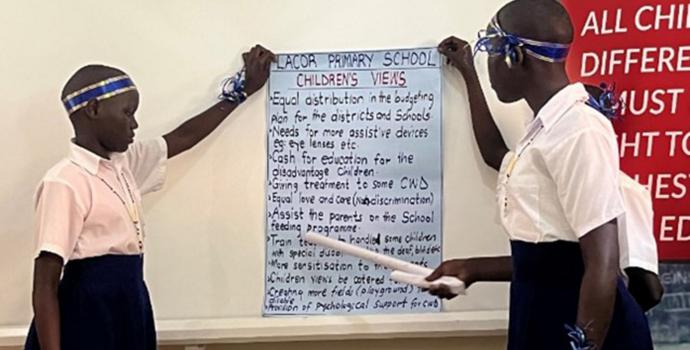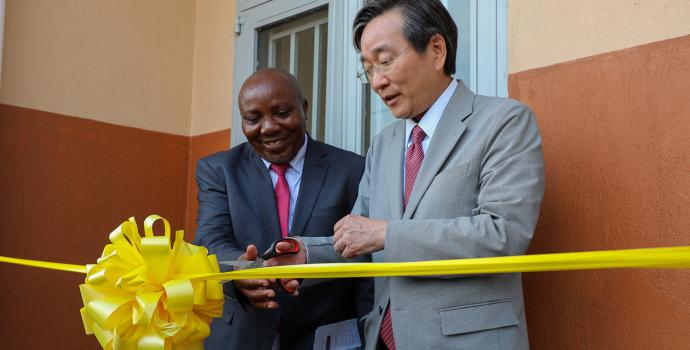Isabella: A champion for breastfeeding
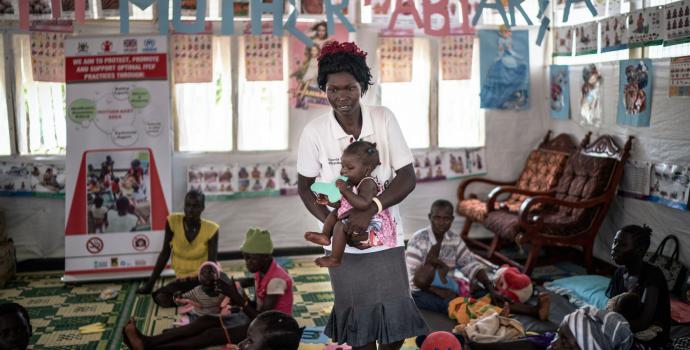
When Isabella talks to other refugee women about the importance of breastfeeding and nutrition tips for newborn babies, they listen - because she knows exactly what they are going through.
Isabella was five months pregnant and excited about becoming a mother for the fourth time, when armed men attacked the town in South Sudan where she had lived all her life.
Scared for her baby, she could only think of escaping the soldiers who transformed her once peaceful community into a terrifying warzone.
Setting off on foot towards the Ugandan border, she hoped to find safety for her and her children. But ss she prepared to cross the border, another group of armed men stole all her possessions. “They took my clothes and all the items I came with,” Isabella remembers. “They robbed everything. I came here with nothing. They robbed my phone.”
Separated from her husband, she had no way of contacting him as his number was stored on her stolen phone. She hasn’t seen or heard from him since and doesn’t even know if he’s still alive.
When she finally reached safety – at the Omugo refugee settlement in northern Uganda’s West Nile region – pregnant Isabella was weak and hungry from the frightening, gruelling five-day journey on foot.
Fearing for her and her unborn baby’s health, Save the Children staff gave her a nutritious fortified porridge to help her regain her strength.
Several months later, she delivered Cecilia, a beautiful healthy baby weighing an impressive 4.5kgs. “Cecilia was a big baby because I’d been eating the porridge,” says Isabella. “Today she’s growing fat and she’s healthy!”
One hour after giving birth, Isabella was surprised when the Save the Children staff at the clinic told her to breastfeed the baby for the first time.
“Before, when I was in South Sudan, we used to think that after giving birth you should wait two or three days before giving the baby breast milk. We thought you were supposed to give the baby water mixed with salt,” says Isabella.
Still traumatised by her ordeal, Isabella found sanctuary at Omugo’s Mother and Baby Area (MBA) – a safe space where mothers receive health and nutrition information, get breastfeeding advice, attend cooking demonstrations, are screened for malnutrition, and attend psychosocial support sessions. It’s a warm and friendly space, with comfortable rocking chairs for breastfeeding mothers; soft, clean mats on the floor where they can rest; toys for the children to play with; and sympathetic staff.
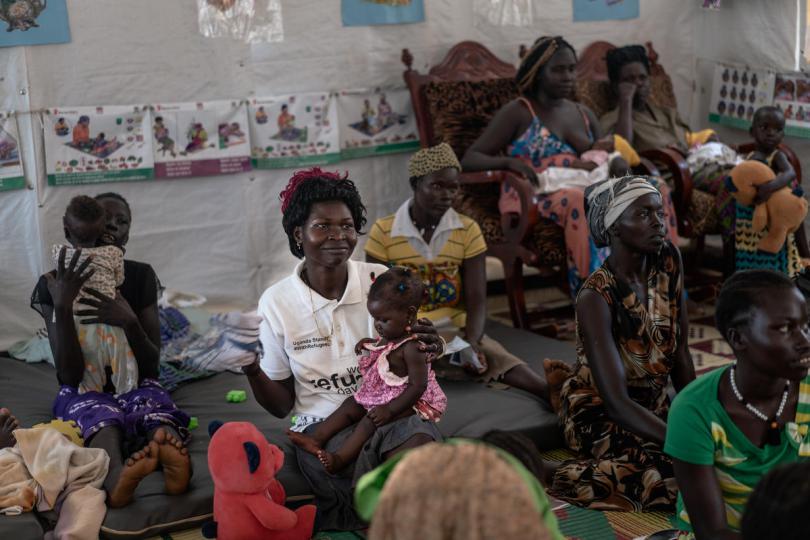
The MBA (pictured above) – run by Save the Children, currently with humanitarian funding from the European Union (ECHO) – sees an average of 200 mothers each month, mostly refugees but also from the local community. One of the simplest solutions to reduce child malnutrition in emergency settings is to enable mothers to breastfeed. Many refugee mothers assume that because they themselves are malnourished, they will not poriduce milk. And becuase they're so stressed from their harrowing experiences of escaping a war zone, they are not breastfeeding. Yet in reality only about 1% of mothers are unable to breastfeed. The trained specialists at the MBAs support and counsel them to breastfeed again.
Isabella started coming before Cecilia was born, and has continued ever since. But she’s no longer just a visitor; she’s now one of the team.
Seeing first-hand the importance of accurate information on breastfeeding and other nutritional advice for mothers, Isabella started assisting the staff in their demonstrations. Together with baby Cecilia, she demonstrated good breastfeeding practices and challenged myths and inaccurate beliefs to help the other mothers.
Soon she became a community volunteer, going door to door to meet with and talk to pregnant women, offering them support and advice. She encourages other women to attend the MBA and get the information needed to keep their babies healthy.
“The MBA gave me health education about how mothers who are pregnant are supposed to eat,” says Isabella. “They are supposed to eat good food in order to build their bodies. They also explain that you should immunise a baby and talk through the six killer diseases and the danger signs in a baby – for instance if a baby has pneumonia. That’s what I learned at the MBA.”
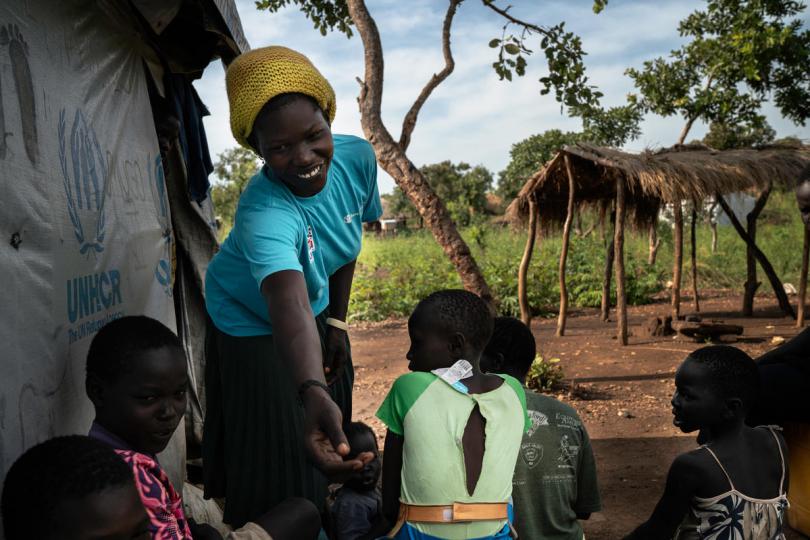
Rukia, one of the MBA staff, says the support of influential mothers like Isabella is essential to the success of the centre:
“We selected Isabella as one of our mother-to-mother supporting people in the community. The community see the example and copy her. She’s made the community at large love the MBAs because of what they’ve learned from her. The mothers get the information from Isabella and become interested in coming to this place because they can see a real change in her. The other mothers want their lives to improve like Isabella’s. Other mothers have kept coming and their lives have changed also.”
Isabella loves her work as an ambassador for the MBAs: “I tell them about the Mother Baby Areas. I like helping people in the community.”
Neighbours like Amelia, who has four children including a nine-month-old baby, says it’s important that the health and nutrition advice comes from someone she knows and trusts – like Isabella, who lives only a few metres away: “Tiny kids need a lot of care so help must be given. Isabella taught us about hygiene and keeping our cooking utensils clean, about giving the children proper food, including porridge for the younger ones, about washing our hands before feeding the kids. I am also more confident when someone close to me gives me advice.”
Thanks to the efforts of women like Isabella, evaluations of the MBA show that more children are being exclusively breastfed as a result, which means there are fewer cases of sickness and fewer infections. There are also fewer cases of malnutrition in the community.
Isabella’s efforts are truly helping to save lives of mothers and their babies.



